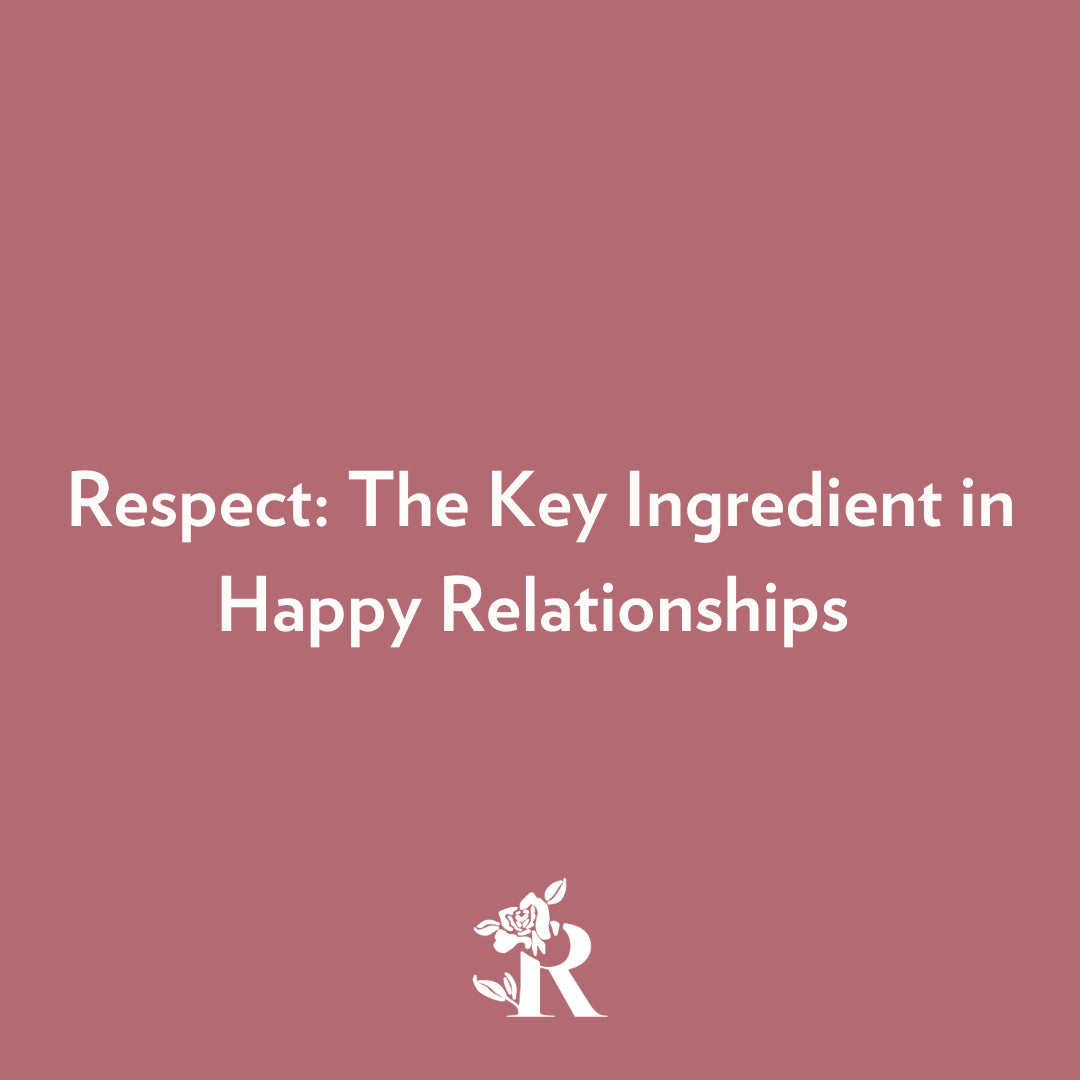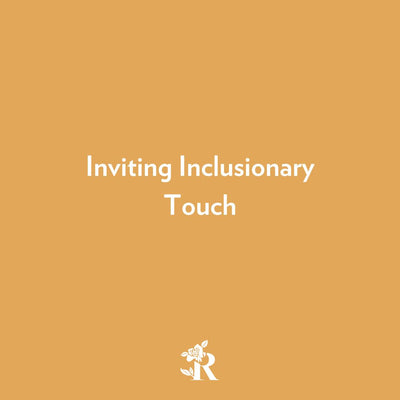Respect: The Key Ingredient in Happy Relationships
“...Love....is one of the most beautiful things that one can experience on our Earth. Nobody who is in this state of love can imagine that it will ever be over. Nevertheless, almost all love relations fail. Human society has a collective heartache. For most people, the area in which they could have the most beautiful experiences is an area of deep disappointment, deep suffering, deep anger and often ultimate resignation. The issue of love is a global issue. There cannot be peace in the world as long as there is war in love...Humankind needs fulfillment in love in order to resurrect.”- Dieter Duhm
In our intimate wellness survey, some of you expressed the pain of being in dissatisfying relationships. The longing to love and be loved for our authentic selves, to be seen and understood by our partners, and to see them and understand them in return is a deep call of being human. Yet, we walk around unhappy and confused much of the time. Why?
Social scientists who study relationships, like the pros at The Gottman Institute, highlight the things that are surefire relationship killers. Their research shows that biggest predictor of relationship failure is the presence of contempt, defined as “feeling that a person or a thing is beneath consideration, worthless, or deserving scorn.” Its antidote is respect, or the “regard for the feelings, rights and wishes of others.” In other words, when we respect someone, we give each other safe passage through our minds and hearts.
How Do We Mute Contempt and Amplify Respect?
We know we can’t change other people, we can only change ourselves. If we are holding someone in contempt, we can get honest about that, and begin to make a shift in our own behaviors and hope that if we make a shift that there will be a systemic positive response loop from that. None of us want to be destructive or cruel to people we care about.
So, we get honest about our role in the system. We begin by noticing and owning the behaviors we engage in that communicate displeasure (like blaming, belittling, shaming, rolling our eyes, even aggressively crossing our arms- anything that creates a hostile space). Notice when and if you feel or act disgusted, condescending or superior towards your partner. Notice if even thinking about these behaviors triggers a feeling of defensiveness in you. That's information too. This contempt is serving some kind of a purpose (you can even ask it what its purpose is!). The purpose is definitely not better intimacy.
It's also helpful to tease out what is yours and what is family system mimicry: what and who does this behavior remind you of? Is it yours or borrowed?
Practice Saying What You Need or Desire
Contempt doesn’t happen overnight. It actually begins when things are feeling lovely, in the limerence stage of a relationship (aka the honeymoon phase). In our infatuation, we ignore the little things that bother us, and then are surprised when those become the main points of conflict when the fairy dust wears off, months or years later. Ideally, we would learn to communicate, continually share and describe our feelings and needs, and create an inviting space for our partners to share theirs. The more your partner knows about your needs, and vice versa, the more likely you are to meet them.
Building Ambient Kindness and Respect
Practice deliberately cultivating admiration and fondness. Intentionally use affectionate and affirming language: why you’re proud of your partner, what you admire about them, how their choices positively impacted your day (read about our daily appreciation practice in our Reverence book).
Let any conflict rest in the broader and more balanced story of the good that you have shared with one another, include the fun or charming stories of your past together. Make at least one positive daily gesture a priority – and it doesn’t have to be grand. The little things matter.
We are creating a feeling tone of respect. The kind of environment we want to come home to, and one in which we are much more likely to approach disagreement or discomfort as a team rather than as opposing sides.
One Rule for Fair Fighting: No Nuclear Options
We all know those couples who are always on the brink of breaking up. They walk around just so disappointed in each other. In a fight, they often use “nuclear option” language – talking about leaving, breaking up, in a constant cycle of emotional damages and recovery. When we are in conflict, and we hold the belief and intention that we will both stay through the conflict and work it out, we calm our nervous system, give ourselves some breathing room. This strengthens a relational container immeasurably: we know we have each other's back no matter what.
A Second Rule: No Weaponizing of Confidences
No weaponizing a person’s known vulnerabilities or weak points. It’s just not loving. Just stop it.
Go a Step Beyond: Move Towards Enchantment
If you are in the contempt state, it’s hard to imagine re-enchantment as a possibility. But we can try! Imagine you’re meeting your person for the first time. What about that would be enchanting? How could you expand that portion of your vision of them? Sometimes it helps to imagine them as the child they were, finding the things that light them up.
Relational unhappiness is bad for everyone: the people directly involved, family systems, communities. It’s really worth putting in the work, owning our part, and ending the often transgenerational cycles of relational patterning, including habitual scorn.











